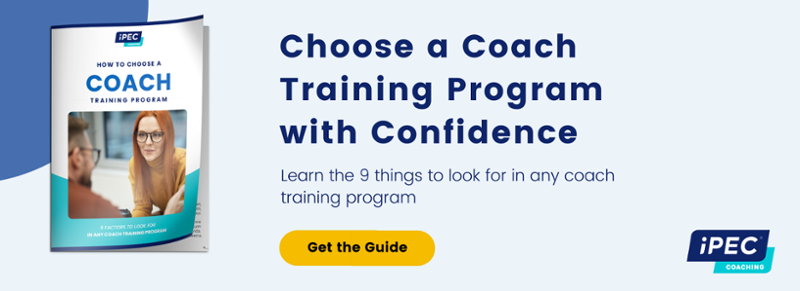Life Coach Qualifications: What Do You Need to Succeed?
by Farrah Hudson
Aug 24, 2016 | 2 minutes read
Yes, Qualifications Are Essential for Becoming a Life Coach
It seems like life coaches are popping up everywhere, and the appeal of this career is easy to understand. Not only can you choose when and where you work, but life coaches can make more than $200 an hour–all while experiencing the satisfaction of helping someone else fulfill their potential.
Still, it isn’t for everyone and when it comes to life coaching qualifications, there are personality traits and key skills that are necessary for the job. If you’re thinking about a career in life coaching, learn more about the natural talents and skills that can help you to successfully build your practice.
The Traits You Need to Become a Life Coach
While anyone can become a life coach, there are certain personalities that are more conducive to working with clients and guiding them through life’s obstacles. These personality traits aren’t absolute requirements, but they are common characteristics of successful life coaches and, when paired with life coaching qualifications, may help you decide if coaching is right for you.
Patience
Clients who seek the help of a life coach may be confused, at a crossroads, or even just plain lost. As you work to help them, your patience will be put to the test. It may take weeks or even months for your clients to move forward and they’ll be experiencing their own frustrations in the process. Your ability to find a way to quell their frustrations (and your own) will be a key factor for the success of your partnership.
Tactfulness
You may think that a life coach is like a cheerleader, standing on the sidelines and offering encouragement and support. While that’s certainly true, a life coach also needs to point out some cold, hard truths about what’s holding a client back or what’s realistic. Tactfulness is crucial for offering criticism in a gentle, constructive way, ensuring that your client both understands and is receptive to the guidance you offer.
Sociability
Life coaching is all about interacting with people, so if you’re a “people person,” the job will be a more natural fit. Not only should you feel comfortable in social situations talking with others, but it’s equally important to make others feel relaxed and willing to open up.
Open-mindedness
As a life coach, you’re likely to encounter a wide range of clients, many of whom will have different backgrounds, beliefs, and morals than your own. If you can’t set aside your own feelings and judgments to treat all clients with respect, life coaching may not be the right path for you.
Insight: A certain level of perceptiveness will take a life coach a long way. Sometimes, you’ll need to see past what your clients tell you to understand what’s really going on. The ability to apply your own life experiences to create empathy and camaraderie with your client will also be important as you two tackle the challenges in front of you.
Earning Your Life Coach Certification
Although there’s no formal training required by law to become a life coach, taking an accredited course will certainly boost your life coaching qualifications in the eyes of potential clients, while providing the skills and tools you need to be an effective coach. Accredited programs are backed by the International Coaching Federation (ICF) and include anywhere from 125 to 300 hours of training.
With accredited life coach training programs, you’ll receive hands-on training and have your coaching sessions observed by professionals who can help you hone and develop your skills. You can choose the type of life coaching certifications to pursue and continuing education is available to keep your skills and approach up to date.
The right training can help you to enhance your own natural talents and develop the personality traits that will make you an effective and successful life coach.
Not only will you be more equipped to help your clients achieve their goals by investing in life coaching qualifications, but you’ll be more confident in your own capabilities—and that all adds up to being more satisfied with your life coaching career.
If you think you have what it takes to become a life coach, learn more about finding the right training program.


